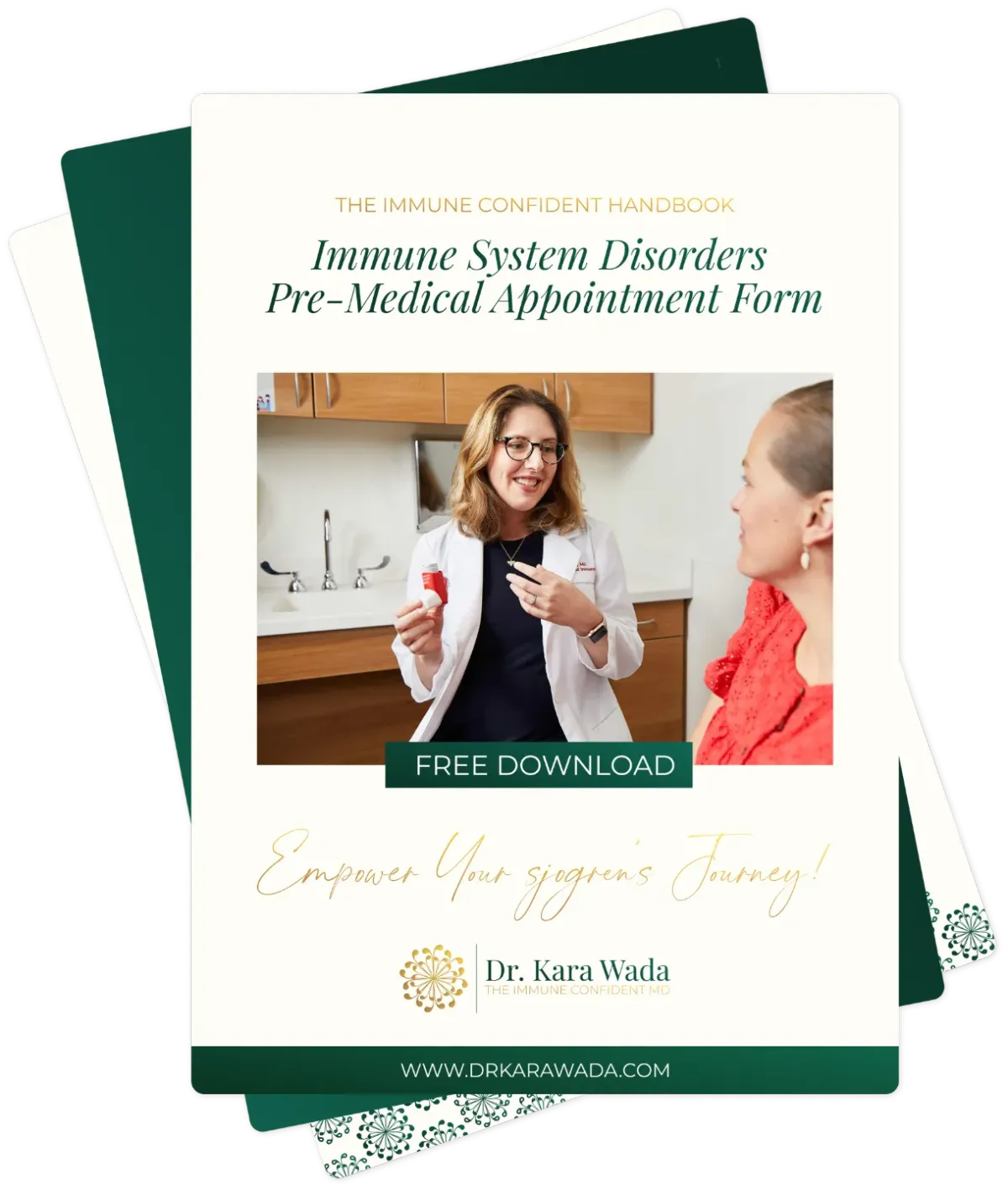"Doesn't Read the Textbook": Finding a Doctor Who Really Listens (Especially with Complex Immune Conditions)
"What do you mean when you say you care for patients that 'don't read the textbook'?" A colleague recently asked me this, and it's a fantastic question that gets to the heart of my approach to medicine.
For over 15 years, I've specialized in helping people navigate the often-confusing world of allergies, asthma, autoimmunity, and mast cell disorders. And as someone living with Sjogren's Disease myself, I understand firsthand what it’s like when your symptoms don’t neatly fit into those medical textbook definitions.
Today, let's explore what "going beyond the textbook" truly means in medicine, especially in a field as intricate as immunology.
When Symptoms Don't Follow the Script
Medical school teaches us about "classic" disease presentations – the textbook cases. This foundational knowledge is crucial. But what happens when a patient's symptoms are very real, often debilitating, yet don't tick all those neat diagnostic boxes?
This was a frequent reality during my nearly eight years as a clinical professor in allergy and immunology at an academic medical center. I focused on patients with complex, often elusive, symptoms. And honestly, my own journey as an "interesting patient" taught me how isolating it feels when your body isn't cooperating with the expected narratives.
There's a joke in medicine (you savvy patients might have heard it!): "You do not want to be medically interesting." When patients feel dismissed by a rushed healthcare system, they understandably seek answers elsewhere. This can lead them down paths of costly, sometimes unhelpful, and occasionally harmful, non-traditional practices simply because they're desperate to feel heard and find relief.
This very real need is what drove me to found the Immune Confident Institute – to create a different kind of healthcare experience for those with complex immune challenges.
The Immune Confident Approach: Going Beyond the Textbook
What does "beyond the textbook" look like in practice?
Deep Listening is Fundamental: It sounds simple, but it's often overlooked. "If you listen to the patient, they'll tell you what's going on" – if you don't interrupt them within the first 10 seconds! It’s about hearing the complete story, validating lived experiences, and understanding the nuances, even when they don't fit a familiar pattern. This takes time. That’s why my appointments are a minimum of 50 minutes, often 110, to truly get the full picture.
Relentless Clinical Detective Work (Hello, Curiosity!): This is where curiosity, a core value at the Immune Confident Institute, shines. It requires thorough investigation, critical thinking, and looking beyond the "horses" to consider the "zebras." It's about piecing together a complex puzzle, even when some pieces initially seem out of place. I love approaching this through the lenses of traditional allergy/immunology, functional medicine (exploring biochemical pathways), and a holistic perspective – zooming in and zooming out. This deep dive is often missing in our traditional system because of time constraints.
Fostering Genuine Partnership: Sometimes, a definitive diagnosis remains elusive in the moment. In these situations, collaboration is key. We work together to decide on the next best steps, establish quality-of-life goals, and determine how far to pursue the diagnostic process. It's about shared decision-making, acknowledging the journey even when the destination isn't perfectly clear, and leveling the inherent power differential in the doctor-patient relationship.
Creating a Sanctuary for Care: My ultimate goal is to provide a safe, unhurried, and deeply validating environment. A place where patients who've felt betrayed by their bodies and past healthcare experiences can receive medically sound care that acknowledges their suffering and empowers them.
The Art and Science of Medicine
This approach doesn't discard essential medical knowledge; it enhances it. It recognizes when textbook answers alone can't address a patient's unique suffering or complex clinical picture. That's where the art of medicine truly meets the science.
In allergy and immunology, conditions like mast cell activation, dysautonomia, and seronegative Sjogren's often present atypically and demand deeper investigation. It's this commitment to looking deeper, listening intently, and partnering authentically that ensures individuals whose bodies "didn't read the textbook" finally feel seen, understood, and empowered.
To my fellow clinicians: How do you interpret "going beyond the textbook"? And to patients: What has it meant to finally find someone on your team who truly listened and looked deeper? Share your thoughts in the comments!


